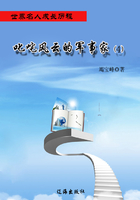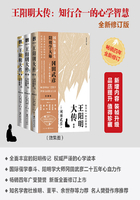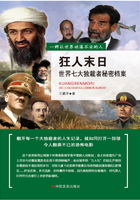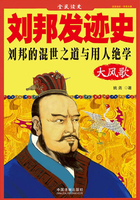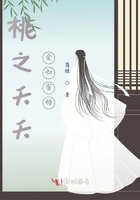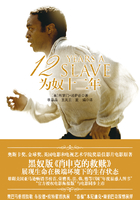1797
Bonaparte's joy at the result of the 18th Fructidor.-His letter to Augereau-His correspondence with the Directory and proposed resignation-Explanation of the Directory-Bottot-General Clarke- Letter from Madame Bacciocchi to Bonaparte-Autograph letter of the Emperor Francis to Bonaparte-Arrival of Count Cobentzel-Autograph note of Bonaparte on the conditions of peace.
Bonaparte was delighted when he heard of the happy issue of the 18th Fructidor. Its result was the dissolution of the Legislative Body and the fall of the Clichyan party, which for some months had disturbed his tranquillity. The Clichyans had objected to Joseph Bonaparte's right to sit as deputy for Liamone in the Council of Five Hundred.
-[He was ambassador to Rome, and not a deputy at this time. When he became a member of the council, after his return from Rome, he experienced no opposition (Bourrienne et ses Erreurs, tome i. p. 240).]
His brother's victory removed the difficulty; but the General-in-Chief soon perceived that the ascendant party abused its power, and again compromised the safety of the Republic, by recommencing the Revolutionary Government. The Directors were alarmed at his discontent and offended by his censure. They conceived the singular idea of opposing to Bonaparte, Augereau, of whose blind zeal they had received many proofs. The Directory appointed Augereau commander of the army of Germany. Augereau, whose extreme vanity was notorious, believed himself in a situation to compete with Bonaparte. What he built his arrogance on was, that, with a numerous troop, he had arrested some unarmed representatives, and torn the epaulettes from the shoulders of the commandant of the guard of the councils. The Directory and he filled the headquarters at Passeriano with spies and intriguers.
Bonaparte, who was informed of everything that was going on, laughed at the Directory, and tendered his resignation, in order that he might be supplicated to continue in command.
The following post-Thermidorian letters will prove that the General's judgment on this point was correct.
On the 2d Vendemiaire, year VI. (23d September 1797), he wrote to Augereau, after having announced the arrival of his 'aide de camp' as follows:
The whole army applauds the wisdom and vigour which you have displayed upon this important occasion, and participates in the success of the country with the enthusiasm and energy which characterise our soldiers. It is only to be hoped, however, that the Government will not be playing at see saw, and thus throw itself into the opposite party. Wisdom and moderate views alone can establish the happiness of the country on a sure foundation. As for myself, this is the most ardent wish of my heart. I beg that you will sometimes let me know what you are doing in Paris.
On the 4th Vendemiaire Bonaparte wrote a letter to the Directory in the following terms:
The day before yesterday an officer arrived at the army from Paris. He reported that he left Paris on the 25th, when anxiety prevailed there as to the feelings with which I viewed the events of the 18th He was the bearer of a sort of circular from General Augereau to all the generals of division; and he brought a letter of credit from the Minister of War to the commissary-general, authorising him to draw as much money as he might require for his journey.
It is evident from these circumstances that the Government is acting towards me in somewhat the same way in which Pichegru was dealt with after Vendemiaire (year IV.).
I beg of you to receive my resignation, and appoint another to my place. No power on earth shall make me continue in the service after this shocking mark of ingratitude on the part of the Government, which I was very far from expecting. My health, which is considerably impaired, imperiously demands repose and tranquillity.
The state of my mind, likewise, requires me to mingle again in the mass of citizens. Great power has for a longtime been confided to my hands. I have employed it on all occasions for the advantage of my country; so much the worse for those who put no faith in virtue, and may have suspected mine. My recompense is in my own conscience, and in the opinion of posterity.
Now that the country is tranquil and free from the dangers which have menaced it, I can, without inconvenience, quit the post in which I have been placed.
Be sure that if there were a moment of danger, I would be found in the foremost rank of the defenders of liberty and of the constitution of the year III.
The Directory, judging from the account which Bottot gave of his mission that he had not succeeded in entirely removing the suspicions of Bonaparte, wrote the following letter on the 30th Vendemiaire:
The Directory has itself been troubled about the impression made on you by the letter to the paymaster-general, of which an 'aide de camp' was the bearer. The composition of this letter has very much astonished the Government, which never appointed nor recognised such an agent: it is at least an error of office. But it should not alter the opinion you ought otherwise to entertain of the manner in which the Directory thinks of and esteems you. It appears that the 18th Fructidor was misrepresented in the letters which were sent to the army of Italy. You did well to intercept them, and it may be right to transmit the most remarkable to the Minister of Police.
-(What an ignoble task to propose to the conqueror of Italy.)
In your observations on the too strong tendency of opinion towards military government, the Directory recognises an equally enlightened and ardent friend of the Republic.
Nothing is wiser than the maxim, 'cedant arma togae', for the maintenance of republics. To show so much anxiety on so important a point is not one of the least glorious features in the life of a general placed at the head of a triumphant army.
The Directory had sent General Clarke
-[H. J. G. Clarke, afterwards Minister of War under Napoleon, 1807-1814, acid under the Bourbons in 1816, when he was made a Marshal of France. He was created Duc de Feltre in 1819.]
to treat for peace, as second plenipotentiary. Bonaparte has often told me he had no doubt from the time of his arrival that General Clarke was charged with a secret mission to act as a spy upon him, and even to arrest him if an opportunity offered for so doing without danger. That he had a suspicion of this kind is certain; but I must own that I was never by any means able to discover its grounds; for in all my intercourse since with Clarke he never put a single question to me, nor did I ever hear a word drop from his mouth, which savoured of such a character. If the fact be that he was a spy, he certainly played his part well. In all the parts of his correspondence which were intercepted there never was found the least confirmation of this suspicion. Be this as it may, Bonaparte could not endure him; he did not make him acquainted with what was going on, and his influence rendered this mission a mere nullity. The General-in-Chief concentrated all the business of the negotiation in his own closet; and, as to what was going on, Clarke continued a mere cipher until the 18th Fructidor, when he was recalled. Bonaparte made but little count of Clarke's talents. It is but justice, however, to say that he bore him no grudge for the conduct of which he suspected he was guilty in Italy. "I pardon him because I alone have the right to be offended."
He even had the generosity to make interest for an official situation for him. These amiable traits were not uncommon with Bonaparte.
Bonaparte had to encounter so many disagreeable contrarieties, both in the negotiators for peace and the events at Paris, that he often displayed a good deal of irritation and disgust. This state of mind was increased by the recollection of the vexation his sister's marriage had caused him, and which was unfortunately revived by a letter he received from her at this juncture. His excitement was such that he threw it down with an expression of anger. It has been erroneously reported in several publications that "Bacciocchi espoused Marie-Anne-Eliza Bonaparte on the 5th of May 1797. The brother of the bride was at the time negotiating the preliminaries of peace with Austria."
In fact, the preliminaries were signed in the month of April, and it was for the definitive peace we were negotiating in May. But the reader will find by the subjoined letter that Christine applied to her brother to stand godfather to her third child. Three children in three months would be rather quick work.
AJACCIO, 14th, Thermidor, year V.
(1st August 1797).
GENERAL-Suffer me to write to you and call you by the name of brother. My first child was born at a time when you were much incensed against us. I trust she may soon caress you, and so make you forget the pain my marriage has occasioned you. My second child was still-born. Obliged to quit Paris by your order,
-[Napoleon had written in August 1796 to Carnot, to request that Lucien might be ordered to quit Paris; see Iung, tome iii. p. 223.]
I miscarried in Germany. In a month's time I hope to present you with a nephew. A favourable time, and other circumstances, incline me to hope my next will be a boy, and I promise you I will make a soldier of him; but I wish him to bear your name, and that you should be his godfather. I trust you will not refuse your sister's request.
Will you send, for this purpose, your power of attorney to Baciocchi, or to whomsoever you think fit? I shall expect with impatience your assent. Because we are poor let not that cause you to despise us; for, after all, you are our brother, mine are the only children that call you uncle, and we all love you more than we do the favours of fortune. Perhaps I may one day succeed in convincing you of the love I bear you.-Your affectionate sister,
CHRISTINE BONAPARTE.
-[Madame Bacciocchi went by the name of Marianne at St. Cyr, of Christine while on her travels, and of Eliza under the Consulate.- Bourrienne.]
P.S.-Do not fail to remember me to your wife, whom I strongly desire to be acquainted with. They told me at Paris I was very like her. If you recollect my features you can judge. C. B.
This letter is in the handwriting of Lucien Bonaparte.'
-[Joseph Bonaparte in his Notes says, "It is false that Madame Bonaparte ever called herself Christine; it is false that she ever wrote the letter of which M. de Bourrienne here gives a copy." It will be observed that Bourrienne says it was written by her brother Lucien. This is an error. The letter is obviously from Christine Boyer, the wife of Lucien Bonaparte, whose marriage had given such displeasure to Napoleon. (See Erreurs, tome i. p. 240, and Iung's Lucien, tome i p. 161).]
General Bonaparte had been near a month at Passeriano when he received the following autograph letter from the Emperor of Austria:
TO MONSIEUR LE GENERAL BONAPARTE, GENERAL-IN-CHIEF OF THE ARMY OF ITALY.
MONSIEUR LE GENERAL BONAPARTE-When I thought I had given my plenipotentiaries full powers to terminate the important negotiation with which they were charged, I learn, with as much pain as surprise, that in consequence of swerving continually from the stipulations of the preliminaries, the restoration of tranquillity, with the tidings of which I desire to gladden the hearts of my subjects, and which the half of Europe devoutly prays for, becomes day after day more uncertain.
Faithful to the performance of my engagements, I am ready to execute what was agreed to at Leoben, and require from you but the reciprocal performance of so sacred a duty. This is what has already been declared in my name, and what I do not now hesitat? myself to declare. If, perhaps, the execution of some of the preliminary articles be now impossible, in consequence of the events which have since occurred, and in which I had no part, it may be necessary to substitute others in their stead equally adapted to the interests and equally conformable to the dignity of the two nations.
To such alone will I put my hand. A frank and sincere explanation, dictated by the same feelings which govern me, is the only way to lead to so salutary a result. In order to accelerate this result as far as in me lies, and to put an end at once to the state of uncertainty we remain in, and which has already lasted too long, I have determined to despatch to the place of the present negotiations Comte de Cobentzel, a man who possesses my most unlimited confidence, and who is instructed as to my intentions and furnished with my most ample powers. I have authorised him to receive and accept every proposition tending to the reconciliation of the two parties which may be in conformity with the principles of equity and reciprocal fitness, and to conclude accordingly.
After this fresh assurance of the spirit of conciliation which animates me, I doubt not you will perceive that peace lies in your own hands, and that on your determination will depend the happiness or misery of many thousand men. If I mistake as to the means I think best adapted to terminate the calamities which for along time have desolated Europe, I shall at least have the consolation of reflecting that I have done all that depended on me. With the consequences which may result I can never be reproached.
I have been particularly determined to the course I now take by the opinion I entertain of your upright character, and by the personal esteem I have conceived towards you, of which I am very happy, M. le General Bonaparte, to give you here an assurance. (Signed) FRANCIS.
In fact, it was only on the arrival of the Comte de Cobentzel that the negotiations were seriously set on foot. Bonaparte had all along clearly perceived that Gallo and Meerweldt were not furnished with adequate powers. He saw also clearly enough that if the month of September were, to be trifled away in unsatisfactory negotiations, as the month which preceded it had been, it would be difficult in October to strike a blow at the house of Austria on the side of Carinthia. The Austrian Cabinet perceived with satisfaction the approach of the bad weather, and insisted more strongly on its ultimatum, which was the Adige, with Venice.
Before the 18th Fructidor the Emperor of Austria hoped that the movement which was preparing in Paris would operate badly for France and favourably to the European cause. The Austrian plenipotentiaries, in consequence, raised their pretensions, and sent notes and an ultimatum which gave the proceedings more an air of trifling than of serious negotiation. Bonaparte's original ideas, which I have under his hand, were as follows:
1. The Emperor to have Italy as far as the Adda.
2. The King of Sardinia as far as the Adda.
3. The Genoese Republic to have the boundary of Tortona as far as the Po (Tortona to be demolished), as also the imperial fiefs. (Coni to be ceded to France, or to be demolished.)
4. The Grand Duke of Tuscany to be restored.
5. The Duke of Parma to be restored.

